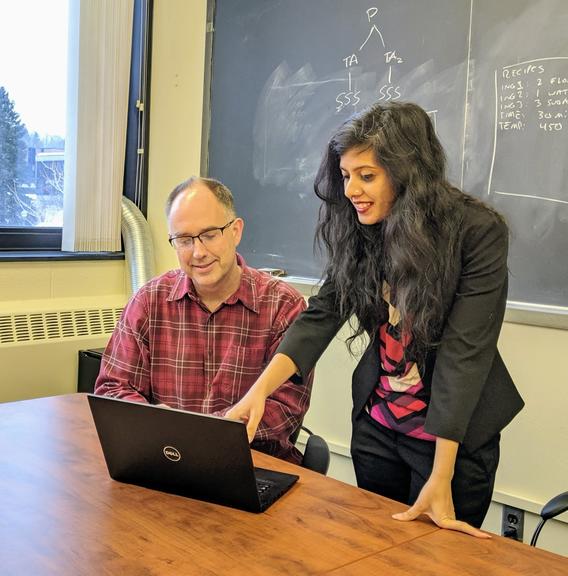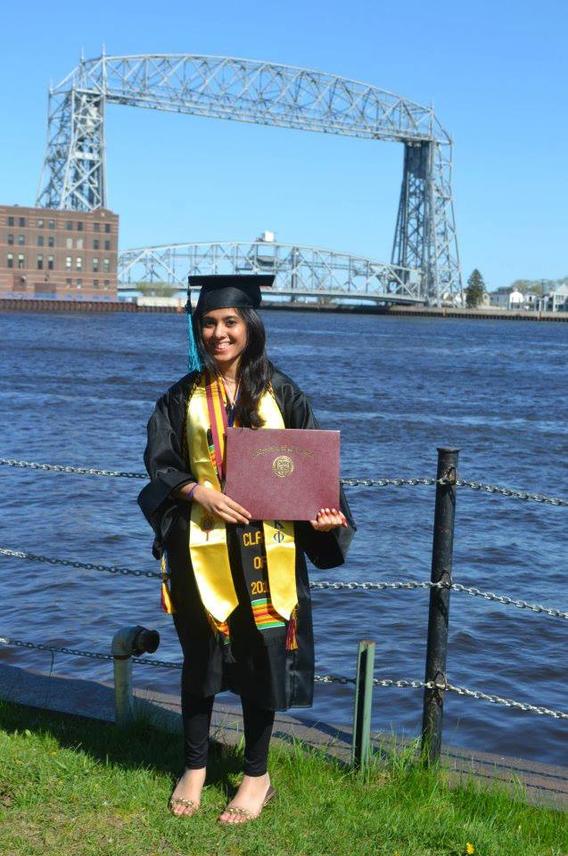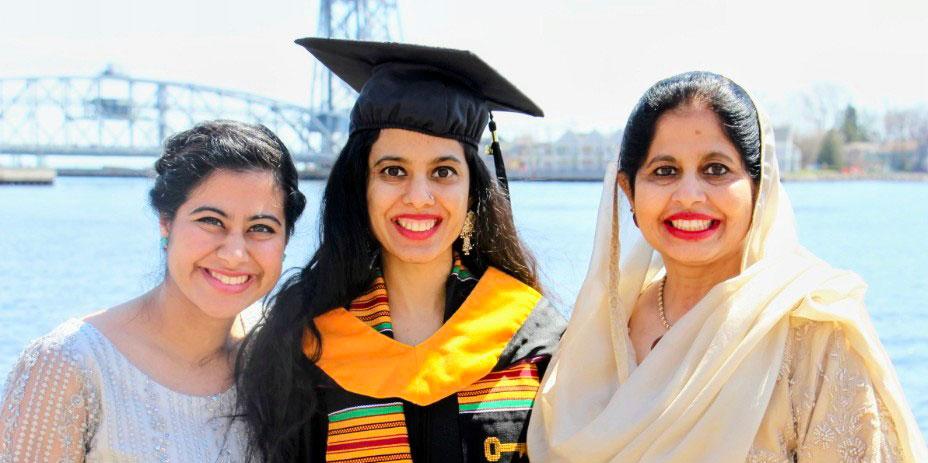With the recent advances in Artificial Intelligence (AI) and the proliferation of new apps that use AI technologies, phrases like Large Language Models and Generative AI have now become mainstream. But University of Minnesota Duluth (UMD) alumna Madiha Shakil Mirza was conducting research on Language Modeling and building robust new models long before those concepts made their way out of research and into the industry.
Madiha grew up in Pakistan, where the first language machine was created 2,500 years ago by Panini, the world’s first linguist. “As a child, I visited the exact place where Panini wrote the syntax, phonetics, and morphology of language for the first time in the history of the world,” she said.
That visit sparked her interest in the beauty and complexity of languages. She dove into technology at a young age when her father bought her and her sisters a new computer shortly after the release of Windows 95. “We were among the first children in our town to have a Windows PC,” Madiha said. “It was very rare and quite expensive to get a PC back then, but my father encouraged his daughters to learn everything about computers and computer technology.”
That encouragement continued on to higher education, and with a scholarship and her parent’s support, Madiha came to the United States to study at UMD.
Along that journey, Madiha achieved many firsts: the first girl from her hometown (Sialkot) to pursue undergraduate education in the United States; the first international student in the University Honors Program; the first Pakistani girl to graduate from UMD with a Bachelor’s degree; and the first Pakistani student to graduate with a Master of Science in Computer Science degree from UMD.

During her graduate studies, Madiha collaborated on research with Ted Pedersen, PhD, a professor of Computer Science and a world-renowned Natural Language Processing (NLP) researcher. NLP is a field of Artificial Intelligence that focuses on creating machines capable of interpreting, analyzing, and generating natural languages.
Collaborating on research with Pederson “was a game changer for my future career,” Madiha said. With his guidance, she learned to build a Language Model for Computational Humor, and created one that could detect linguistic humor in puns. “That’s a complicated problem to solve,” she said.
Her model was trained on 3.98 billion tokens of news data and tested on 1 million heterographic puns. It underwent evaluation by annotating half-a-million puns in the test dataset. The Language Model performed well, with high accuracy, successfully identifying the majority of puns in the test set.
Madiha and Pedersen continued their collaboration on additional Computational Humor projects, focusing on teaching machines the art of humor. Their work in developing an irony detection system was published in the Association for Computational Linguistics (ACL), one of the foremost research journals in the field of Natural Language Processing.
Their research, once ahead of its time, has now become mainstream.
“I have always been passionate about AI and emerging technologies,” Madiha said. “The mentorship I received during my graduate studies at UMD, combined with the excellent academics and diverse extracurricular opportunities, equipped me with the skills to contribute to the development of AI technologies.”

In addition to her academic successes and trailblazing series of firsts, some of her most cherished memories at UMD include her mother attending her and her sister’s commencement on the same day, as well as the opportunity to meet President Obama.
In her career as an Artificial Intelligence and Natural Language Processing engineer, Madiha works to develop algorithms for solving intricate technical challenges, creates chatbots and Large Language Models, and builds predictive models using Machine Learning and Deep Learning to solve real-world problems across industries.
Her experience is something she wants to pay forward to the next generation. “I consider it my responsibility to share my AI and NLP knowledge with future technologists,” she said. So in her spare time, she volunteers as a STEM mentor for middle school and high school students.
And while the power of AI and Large Language Models seems new to most consumers, Madiha feels fortunate to have been exploring the field long before it hit the headlines. “Large Language Models have deciphered the intricacies of language complexity,” Madiha said. “Now machines can grasp the languages’ nuances and be autonomously generative and creative.”
With computers now capable of human-like communication, the once unimaginable goal of having machines exhibit intelligence on par with, or indistinguishable from humans, has become a reality.
So what better way to close out an article about a pioneer in AI than to ask a Large Language Model itself for its favorite word play. “My personal favorite pun is: ‘I'm reading a book on anti-gravity. It's impossible to put down!’” ChatGPT said. “It's a classic that never fails to bring a smile!”
Top image: Madiha Shakil Mirza at her Master of Science in Computer Science commencement ceremony with her mother Shakila Mirza, sister Nawal Shakil Mirza (also a UMD graduate). All photos submitted.
